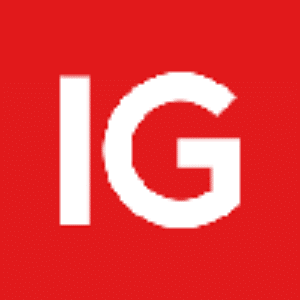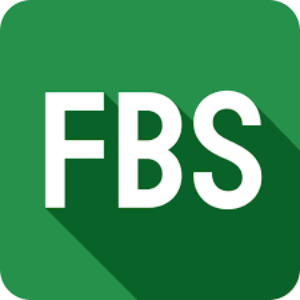
Futures Trading is unique because it offers entry into various classes of assets that are discussed above and from commodity to financial instruments. Choosing from the best futures broker is therefore crucial for success in this complex market. The best brokers offer such platforms that are user-friendly, offer competitive fees, and essential tools both for analysis and proper management of risk, thus making it easy for me to implement my strategies effectively.
Navigating the futures market can be challenging, but with the right broker, I can gain access to valuable resources and customer support that enhance my trading experience. It’s also important to consider educational materials that some brokers provide, which can help me stay informed about market trends and refine my trading strategies over time.
5 Best Futures Brokers for Professional Traders
Professional-Grade Trading Platforms Comparison
| Broker | Specialization | Platform & Tools | Pricing Model |
|---|---|---|---|
|
Interactive Brokers
TOP CHOICE
|
Global Market Access Leader
135+ Markets
Multi-Asset Trading
Institutional Grade
|
Trader Workstation
API Access
Advanced Analytics
Real-time risk management tools
|
Tiered Pricing
Volume Discounts
Best for high-volume traders
|
|
NinjaTrader
FUTURES SPECIALIST
|
Pure Futures Trading
E-mini Specialists
Micro Contracts
Algorithmic Trading
|
Custom Indicators
Market Replay
Strategy Builder
24/7 emergency trading support
|
Flexible Options
Low Margins
Free platform with live trading
|
|
TradeStation
AUTOMATION PRO
|
Automated Strategy Expert
EasyLanguage
Strategy Testing
Community Forum
|
Advanced Charting
Backtesting Suite
RadarScreen
Proprietary programming language
|
Per-Contract
Per-Share Option
Competitive for active traders
|
|
IG Markets
INDEX CHAMPION
|
Index Futures Excellence
Global Indices
24/7 Trading
DMA Access
|
Web Platform
Mobile Trading
ProRealTime Charts
Direct market access (DMA)
|
Spread-Based
No Commission
Cost-effective for frequent traders
|
|
TD Ameritrade
RESEARCH MASTER
|
Research & Education Leader
Comprehensive Education
In-Depth Analysis
Trading Specialists
|
thinkorswim
papermoney
Real-time News
Professional-grade analytics
|
Standard Commission
No Platform Fees
Educational value justifies costs
|
2025 Analysis | Focused on Professional Trading Capabilities
Understanding Futures Trading

Futures trading involves complex contracts that are important for managing risk in various markets, including commodities, currencies, and financial derivatives. I will cover the basics of futures contracts, key terminologies, and how to evaluate futures and commodity markets.
The Basics of Futures Contracts
Futures contracts are agreements to buy or sell an asset at a predetermined price on a specified date. They are typically used for commodities like agricultural products, precious metals, and even financial instruments like bonds.
A futures contract helps traders lock in prices, which can protect them from market fluctuations. For instance, a farmer might sell a futures contract for wheat to secure a price before harvest. This way, they can plan their finances better, knowing they have a guaranteed price for their crop.
Each contract represents a specific quantity of the commodity, and they are traded on futures exchanges. Futures trading platforms allow traders to execute their trades and manage their positions effectively.
Key Terminologies in Futures Markets
In futures trading, understanding key terms is essential. Here are a few important ones:
- Margin: This is the amount of money required to open and maintain a futures position. It acts as a security deposit.
- Leverage: This refers to using borrowed funds to increase the potential return on investment. While it can amplify profits, it also increases risk.
- Settlement: Futures can be settled either by physical delivery of the asset or cash settlement, depending on the contract terms.
Learning these terms helps me navigate the complexities of the futures markets and make informed decisions. This knowledge can greatly impact the success of my trading strategy.
5 Best Futures Brokers in 2025 for Professional Traders

1. Interactive Brokers
Widely recognized for its advanced technology and broad market access, Interactive Brokers is ideal for professionals looking for a robust trading platform with competitive pricing. It supports complex strategies and offers a range of order types and backtesting tools. However, its platform can be complex for beginners, and the account setup might have stringent requirements.
- Platforms and Tools: Offers the Trader Workstation (TWS), known for its advanced trading features including a wide array of order types, risk management tools, and real-time monitoring. The platform supports automated trading strategies through its API.
- Market Access: Provides access to over 135 markets worldwide, allowing trading in futures, options, stocks, currencies, bonds, and more from a single account.
- Pricing: Competitive commission structure with tiered pricing based on volume, making it cost-effective for high-volume traders.
- Educational Resources: Offers a comprehensive traders’ university that includes webinars, courses, and seminars to help traders refine their trading skills.
2. NinjaTrader
Known for its flexible pricing and powerful trading tools, NinjaTrader is preferred by traders focused solely on futures. It provides a customizable and user-friendly platform with low margins for micro and standard futures contracts. It also offers an emergency support desk and extensive data analytics, but direct equity or options trading isn’t supported.
- Platforms and Tools: Features an intuitive trading platform that can be customized to fit individual trader needs. Offers advanced charting capabilities, market analytics, and trade simulation to practice trading strategies.
- Special Features: Focuses on futures trading with options for automated trading, which is ideal for traders who use algorithmic strategies.
- Account Types: Flexible account setup with options for free use when doing simulation trading or competitive commission rates for live trading.
- Customer Support: Provides 24-hour technical support and a responsive emergency desk for urgent trading issues.
3. TradeStation
TradeStation is praised for its highly customizable platform suited to advanced futures traders who want to employ automated trading strategies. It provides extensive backtesting facilities and a rich array of technical analysis tools. However, it might require a steeper learning curve to fully leverage its capabilities.
- Platforms and Tools: Known for its robust trading platform, TradeStation offers powerful analytical tools, including charting, back-testing, and automated trading capabilities using its proprietary EasyLanguage.
- Product Range: Offers a wide range of futures products, including commodities, indices, and financials.
- Pricing: Competitive pricing with a choice of per-trade or per-share/contract commission structures, which can benefit both high-volume and occasional traders.
- Educational and Research Resources: Provides extensive educational materials and a community forum where traders can exchange ideas and strategies.
4. IG Markets
IG excels in index futures with access to a wide range of international markets and contracts. The platform combines user-friendly design with powerful charting tools and has a strong regulatory framework, making it reliable for professional use. IG does not charge commission on futures but operates on a spread basis, which can be a crucial consideration for cost-sensitive trading strategies.
- Platforms and Tools: Offers a user-friendly web platform and mobile app that include advanced charting, risk management tools, and alerts. IG also provides direct market access (DMA) for high-speed trade execution.
- Market Coverage: Specializes in index futures but also offers a variety of other asset classes including commodities and bonds.
- Spreads and Fees: Uses a spread-based pricing model for futures trading, with no commission fees, which can lower trading costs for frequent traders.
- Global Access: Regulated by multiple major financial authorities, offering services to traders around the globe with 24/7 trading on select markets.
5. TD Ameritrade
Offers a comprehensive suite of trading tools through its thinkorswim platform, particularly suited for futures traders looking for depth and professional-grade analytics. The platform includes an array of educational resources to enhance trading knowledge, making it a solid choice for those who value research and learning alongside trading.
- Platforms and Tools: Features the thinkorswim trading platform, renowned for its comprehensive tools tailored for futures traders. Includes advanced charting, real-time news, and a suite of drawing tools.
- Product Offerings: Provides a broad selection of futures products to trade, including commodities, indices, and treasury futures.
- Educational Resources: Offers a wealth of educational content, including tutorials, articles, and live webinars to help traders improve their futures trading knowledge.
- Customer Service: Known for its strong customer support with 24/7 availability and access to trading specialists.
Evaluating Futures and Commodity Markets
When looking to trade futures, I need to evaluate market conditions carefully. Key factors include:
- Supply and Demand: Understanding the basic economics can help predict price movements. If demand exceeds supply, prices typically rise.
- Market Trends: Analyzing price charts and market sentiment can provide insights into potential direction. Technical indicators also play a role in decision-making.
- Economic Reports: Factors such as interest rates, inflation data, and government reports can influence market behavior. Staying updated with these reports is crucial for making timely trades.
Using this evaluation process enables me to make strategic choices in the futures market, aligning with my trading goals and risk tolerance.
Choosing a Futures Broker

Selecting the right futures broker is crucial for success in futures trading. I focus on several key factors: the broker’s reputation and regulation, fee structures, and margin requirements. These elements will help ensure a robust trading experience.
Assessing Broker Reputation and Regulation
When I look for a futures broker, the first step is to assess their reputation. I check reviews from other traders and consider how long they’ve been in business. A well-established broker often has a solid track record.
Regulation is equally important. I ensure the broker is regulated by recognized authorities like the Commodity Futures Trading Commission (CFTC) or the National Futures Association (NFA). A regulated broker provides an added layer of security and follows strict compliance standards. This helps me feel safe while trading.
Understanding Fee Structures and Commission Rates
Next, I examine the broker’s fee structures and commission rates. Different brokers offer various fee models, such as flat fees or percentage-based commissions. I prefer brokers with transparent fee schedules that don’t hide costs.
I also consider the cost per trade and any additional fees, like account maintenance or withdrawal fees. Speculating costs can add up quickly, affecting my profits. Comparing these rates helps me identify the best futures brokers for my trading style.
Margin Requirements and Leverage Options
Finally, I look into margin requirements and leverage options. Margin is essential for controlling larger positions with less capital. Brokers may have different margin requirements, impacting how much I can trade.
Leverage can amplify both potential gains and losses. I prefer brokers that offer competitive leverage ratios while ensuring they maintain sufficient risk controls. Understanding these aspects helps me manage my trading strategy effectively, allowing me to navigate the futures market with confidence.
Technical Analysis and Trading Tools

In futures trading, using the right technical analysis and trading tools can greatly improve your decision-making process. Key components include charting tools, trading platforms, and the use of demo accounts for practice. Each of these tools serves a specific purpose in helping traders analyze market conditions and develop effective strategies.
Charting Tools and Technical Indicators
Charting tools are essential for visualizing market trends and price movements. They allow me to track the performance of futures contracts over time. Popular platforms, like NinjaTrader and TradeStation, offer advanced charting features. I can customize my charts with various technical indicators such as moving averages, Bollinger Bands, and Relative Strength Index (RSI).
These indicators help me identify potential entry and exit points. For instance, a crossover in moving averages can signal a trend change. Additionally, in-depth charting helps me conduct backtesting of my strategies. This means I can analyze past performance to refine my approach before risking real capital.
Trading Platforms and Mobile Trading
Using a reliable trading platform is crucial for executing trades efficiently. I often consider platforms like Interactive Brokers, which provide robust tools and real-time data. Features such as order placement, market analysis, and account management are vital for my trading.
Mobile trading has also become increasingly important. With mobile applications, I can monitor my positions and execute trades from anywhere. This flexibility allows me to react quickly to market changes, an important aspect of successful futures trading. I look for apps that offer comprehensive features, such as advanced charting and real-time alerts.
Paper Trading and Demo Accounts
Before risking real money, I always recommend using paper trading or demo accounts. Most platforms, including TradeStation, offer these accounts to simulate real trading. This environment allows me to practice strategies without the financial risk.
Demo accounts provide access to real-time market data and trading conditions. I can experiment with different strategies, learn how to use trading platforms, and develop my skills. This practice helps build my confidence when I am ready to trade with real funds. Moreover, it keeps me familiar with potential trading costs, commissions, and execution speeds, all crucial for effective futures trading.
Support Services and Educational Resources

The effectiveness of a futures broker often hinges on the quality of their support services and educational resources. These elements play a crucial role in helping traders navigate the complexities of the futures market.
Customer Support and Service Excellence
Strong customer support is vital for futures traders. A broker’s responsiveness can greatly impact the trading experience. Many brokers offer multiple support channels, such as:
- Phone: Instant access to support teams for urgent inquiries.
- Email: A convenient option for less immediate questions.
- Live Chat: Real-time assistance directly on the trading platform.
Effective customer service should not only resolve issues quickly but also offer knowledgeable guidance on trading strategies and platform features. Traders benefit from brokers with extensive experience, as they can provide tailored advice based on individual investor needs. In my observations, firms that prioritize customer service often have higher client satisfaction rates.
Educational Content and Research Tools
Educational resources can significantly enhance a trader’s skill set. I find that brokers who provide comprehensive educational material, such as:
- Webinars: Live sessions covering various trading topics and strategies.
- Tutorials and Articles: Written guides that explain everything from market basics to advanced strategies.
- Market Research Reports: In-depth analysis that helps traders make informed decisions.
These tools should be accessible and easy to understand, catering to both novice and experienced traders. Additionally, research tools like market data analytics and technical analysis software can empower traders in making timely and informed trading decisions. The combination of solid educational content and effective research tools creates a robust trading environment for futures traders.
Risk Management and Trading Strategies

Effective risk management and trading strategies are essential for success in the futures market. Proper planning and execution can help traders navigate volatility and protect their investments.
Creating Effective Risk Management Plans
When I create a risk management plan, I focus on identifying potential risks in my trading approach. First, I assess my risk tolerance, which is crucial for setting appropriate loss limits. I recommend establishing clear stop-loss orders to minimize losses on each trade. This means deciding how much I am willing to lose before exiting a position.
I also consider using a diversified portfolio to spread risk across various assets. By doing this, I reduce the impact of adverse movements in any single investment. Additionally, I track my trading performance and adjust my strategies. Keeping records helps me understand what works and what doesn’t, leading to continuous improvement.
Strategies for Futures Trading Success
To succeed in futures trading, I emphasize the importance of choosing the right trading strategies. I find technical analysis to be invaluable. Analyzing charts and indicators helps me spot trends and forecast market movements. I prefer using simple indicators like moving averages and Relative Strength Index (RSI) to gauge market momentum.
In addition, I often use two main order types: market and limit orders. Market orders execute trades immediately at the current price, while limit orders allow me to set a specific buy or sell price, which can help control entry and exit points more effectively. Adopting a disciplined approach, including adhering to these strategies while managing my emotions, is crucial for long-term success in futures trading.
Conclusion
In conclusion, selecting the right futures broker is a decision that should not be taken lightly. The complex nature of futures trading demands a broker that not only offers a sophisticated trading platform and comprehensive market access but also prioritizes robust customer service and educational support. Each trader has unique needs and strategies, and the choice of broker should align with these to maximize potential returns and manage risks effectively.
Moreover, staying informed through continuous learning and adapting to market changes can significantly enhance trading outcomes. As I continue to explore the futures market, I prioritize brokers that not only meet my immediate trading needs but also contribute to my long-term trading success through ongoing support and advanced resources. Remember, the right broker is your partner in navigating the challenging yet rewarding world of futures trading.
Frequently Asked Questions
In this section, I address common questions people have about selecting futures brokers. Each question targets specific needs and criteria to help you make informed decisions.
What are top recommended futures brokers for beginners?
For those new to futures trading, I recommend brokers like Interactive Brokers and TD Ameritrade. They offer user-friendly platforms and extensive educational resources. These features help beginners understand futures trading better and start with confidence.
Which futures brokers offer the best platforms for day trading?
When it comes to day trading, I find that platforms such as TradeStation and NinjaTrader provide advanced tools and functionalities. Their charting capabilities and execution speeds are ideal for active traders looking to capitalize on market movements quickly.
How do I choose a broker for small futures trading accounts?
For small trading accounts, I suggest looking for brokers with low minimum deposit requirements and affordable commission structures. Brokers such as Charles Schwab and E*TRADE cater to smaller investors while offering comprehensive services.
What should I look for when selecting a futures broker in the USA?
Selecting a broker in the USA involves checking their regulatory compliance, fees, and customer support. I recommend ensuring the broker is registered with the Commodity Futures Trading Commission (CFTC) and offers transparent pricing.
Can you recommend futures brokers that integrate seamlessly with TradingView?
Brokers like Tradovate and Amp Futures are known for their compatibility with TradingView. This integration allows me to analyze charts in real-time while executing trades through the broker’s platform.
What are the factors to consider when comparing futures brokers associated with fees and commissions?
When evaluating futures brokers, it’s important to examine the structure of fees and commissions. Look for transparency in pricing, including trading commissions, market data fees, and account maintenance charges. Understanding these costs can greatly impact trading profitability.









